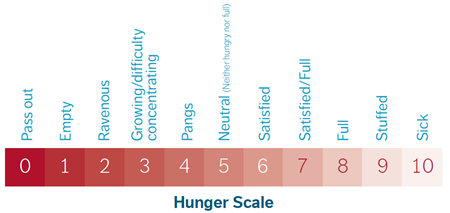Intermittent Fasting: Friend or Foe?
December 20, 2021By: Becky Hager
Categories: Live Healthy, Nutrition, Your Wellness

The Science of Intermittent Fasting
Sept. 21, Noon - Virtual
Although there is credible scientific evidence about the weight loss benefits of intermittent fasting, its results don’t come quickly or are guaranteed. Learn about the science behind this much-hailed weight loss technique.
Breakfast is when we “break” our “fast” every day. Any time you are not eating, you are “intermittent fasting.” This trend started a few years ago, but should you join the craze?
Types of Fasting
Unlike most diets that tell you exactly what to eat, intermittent fasting focuses on when you should eat. It is an eating style that consists of cycling between periods of voluntary food restriction and periods of eating.
Fasting can be based on either the number of hours you refrain from eating in 24 hours or identified as a caloric fast. During the restricted phase, you don’t eat any solid foods and drink only water; coffee; tea; and clear, electrolyte drinks.
Top 3 Ways to Fast
Alternate Day Fasting
Alternate between one day of eating and one day of fasting with a 500-calorie limit.
5:2 Method
Restrict calories two days a week. Follow your normal eating pattern for the remaining five days.
Time-Restricted
Time-restricted fasting is popular because most of the fasting is done during sleep. There is the 16:8 method or 14:10 option. With the 16:8 ratio, only eat from 11 a.m.-7 p.m. or noon-8 p.m. and fast the remaining time. The 14:10 method only allows eating from 10 a.m.-8 p.m.
What Should You Eat?
There isn’t a list of foods to eat or to avoid. Use this time to improve your overall health and choose whole foods (fruits, vegetables, whole grains, lean protein, plant-based fats and water) rather than processed foods and sugary beverages.
Benefits of Fasting
Unlike some costly diet programs, intermittent fasting is free. Preliminary studies show intermittent fasting may cause participants to:
- Lose weight
- Improve blood sugar and metabolic syndrome numbers
- Decrease inflammation
- Lower blood pressure
- Reduce waist circumference
- Improve LDL (bad cholesterol) and triglycerides
Any amount of fasting can be beneficial because we shift our metabolism from glucose as our main fuel source to fat stores.
Intermittent fasting also keeps us from eating processed sweets and/or salty foods at night, which is often done out of habit. When we refrain from evening snacks and mindless eating, blood sugar levels improve.
Not for Everyone
Consult your doctor before you start a weight loss plan. Intermittent fasting isn’t for pregnant or breastfeeding women, or anyone who is malnourished, has a history of disordered eating patterns or struggles to keep blood sugars in check.
If you try intermittent fasting, focus on hydration and beware of these possible symptoms: nausea, light-headedness, dizziness and irritability (hangry). You can adjust your window of fasting to better fit your situation and still reap the benefits.
Is It for You?
Before attempting intermittent fasting, ask yourself these questions.
- What are you expecting to accomplish?
- Does it fit your lifestyle?
- Is it sustainable long-term or will you quit in a month because it’s so restrictive?
After answering these questions, if you feel intermittent fasting isn’t for you, try these tips:
- Limit daytime and evening grazing. Focus on eating earlier in the day, if possible.
- Move your body, every day. Increase your metabolism by building muscle tone through strength training. Try one of our classes for all fitness levels.
- Focus on a whole food approach - include lean protein, fruits, vegetables, healthy fats and whole grains daily. Consider using the hunger and fullness scale below to check in mentally before, during and after meals with the goal of staying between 4 and 7. Learn more from our Nutrition Counseling services




